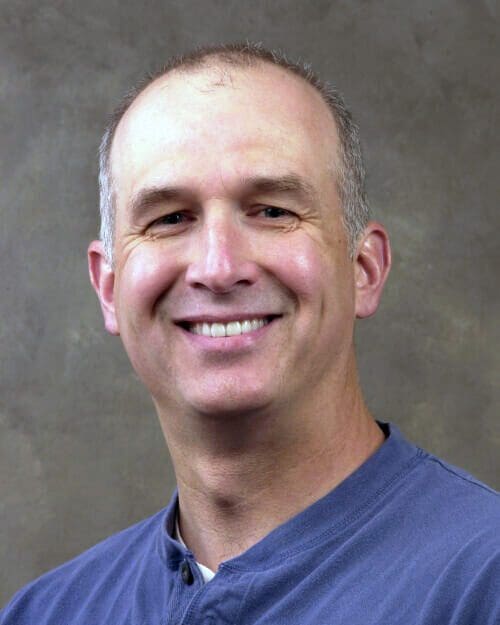Lionhearted Leaders: Curtis Creighton

Curtis Creighton launches students into research careers
If you take a class with Curtis Creighton, professor of Biological Sciences in the College of Engineering and Sciences, you may have the chance to see a unique face mask fashion choice. In his mask collection Creighton has one with an image of the American Burying Beetle.
It’s a special critter to him. It’s an endangered species he’s researched since the 1990s when he was a graduate student. What started out as a side project transformed into his research passion.
“I feel good about doing my part to save biodiversity,” Creighton says. “From an ethical perspective, I like to think I can contribute to saving the planet’s organisms.”
The beetle earns its name because of how they feed and breed on small, deceased vertebrates. At one point the beetle occupied territory across 2/3 of North America, but now has significantly reduced populations presently found in the western Great Plains and off the coast of Rhode Island and Massachusetts.
“If you keep your eyes open to possibilities, then you don’t reject something and don’t miss out on opportunities. Thirty years later and I’m still plugging away, getting research grants, and still have students interested.”
One of Creighton’s recent grants was from the U.S. Fish and Wildlife Service.
More than data
Creighton feels some of his best achievements come through the student researchers he guides at the undergraduate and graduate levels at Purdue University Northwest (PNW) and doctoral students from Purdue West Lafayette.
He is proud of his students and their drive to collect data, but he tells them “you’re 10% of the way done.”
“The writing and analysis is the hard part,” Creighton says. “When an undergraduate does a project in my lab, part of the requirement is that they submit a research proposal. How do you get grant money, what is the structure of the grant, how do you sell the grant? These are important aspects of being a successful researcher.”
Creighton feels that participating in the entire process of research from the beginning increases the sense of ownership students can have with a project. That sense of ownership increases the chances of being successful.
Teaching teamwork
Creighton often pairs graduate students to mentor undergraduate students. He believes the collaboration helps set up students for doctoral programs and as future professional researchers or teachers.
“We create a culture where we’re highly interdependent. It’s more than the nuts and bolts of research — it’s how to cooperate in a research lab,” he says. “We share the load so no one gets too overwhelmed. You benefit by the interaction. But there also comes a responsibility. For example, if someone forgets to feed the beetles and the beetles all die, that sets back everyone’s work or project.
Creighton feels PNW as a regional campus and metropolitan university offers significantly more opportunities for student and faculty interaction.
“You can get quality one-on-one research time here with a professor and be part of potentially important research.”